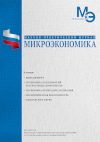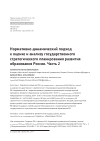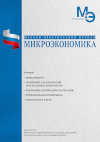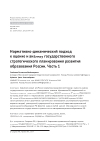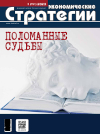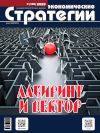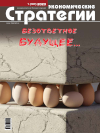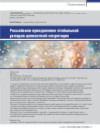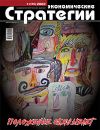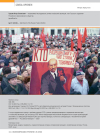Why did the Russian Economy not Collapse under the Influence of Sanctions?
DOI: 10.33917/es-3.195.2024.16-27
Chronicles of the trade and economic war (sanctions, restrictions, etc., in fact, attempts to organize an economic, scientific and technical blockade) of the conventionally united West against Russia after 2014 in general and after the beginning of the Limited Military Operation in particular clearly demonstrate that Atlantic opponents didn’t manage to defeat us economically. They don’t understand why that happened… Russia, to the whole world’s surprise, is successfully realizing its economic potential, monetizing it into stability of the political regime and building up a victorious defence potential. What’s the cause of such macroeconomic stability (national strength) of Russia?
References:
1. Isard W. Interregional and Regional Input-Output Analysis: A Model of a Space Economy. Review of Economics and Statistics, 1951, vol. 33, pp. 318–328.
2. Leontief W., Strout A. Multiregional Input-Output Analysis. Structural Interdependence and Economic Development (ed. T. Barna). London, Macmillan (St. Martin’s Press), 1963, pp. 119–149.
3. Koopman R., Wang Z., Wei Shang-Jin. Tracing Value-Added and Double Counting in Gross Exports. NBER Working Paper no 18579, Cambridge, National Bureau of Economic Research, 2012.
4. Makarov V.L., Bakhtizin A.R., Sushko E.D. Natsional’naya strategicheskaya sila stran, mezhdunarodnaya torgovlya i ekonomicheskaya uspeshnost’ stran v nestabil’nom mire [National Strategic Power of Countries, International Trade and Economic Success of Countries in the unstable World]. Strategirovanie: teoriya i praktika, 2023, vol. 3, no 3(9), pp. 277–297.
5. Ageev A.I., Bakhtizin A.R., Makarov V.L., Loginov E.L., Khabriev B.R. Ekonomicheskiy fundament pobedy: strategicheskiy prognoz ustoychivosti ekonomiki Rossii v
usloviyakh sanktsionnykh atak [Economic Foundation of Victory: a Strategic Forecast for the Russian Economy Stability in the Face of Sanctions]. Ekonomicheskie strategii,
2023, vol. 25, no 3(189), pp. 6–15, DOI: https://doi.org/10.33917/es-3.189.2023.6-15
6. Makarov V.L., Il’in N.I., Bakhtizin A.R., Khabriev B.R. Natsional’naya sila stran mira: otsenka i prognoz [National Strength of the Countries in the World: Evaluation and Forecast]. Ekonomicheskie strategii, 2022, vol. 24, no 6(186), pp. 38–51, DOI: https://doi.org/10.33917/es-6.186.2022.38-51
7. Makarov V.L., Bakhtizin A.R., Loginov E.L. Primenenie ekonomiko-matematicheskikh metodov i modeley optimal’nogo planirovaniya v tsifrovoy ekonomike budushchego (TsEMI AN SSSR i TsEMI RAN: prognosticheskaya interpretatsiya i razvitie nauchnogo naslediya nobelevskikh laureatov L.V. Kantorovicha i V.V. Leont’eva) [Application of Economic-mathematical Methods and Optimal Planning Models in the Digital Economy of the Future (CEMI AS USSR and CEMI RAS: Predictive
Interpretation and Development of the Scientific Heritage of Nobel Laureates L.V. Kantorovich and V.V. Leontief)]. Moscow, Tsentral’nyy ekonomiko-matematicheskiy




